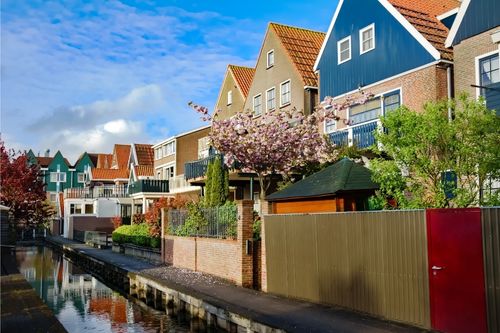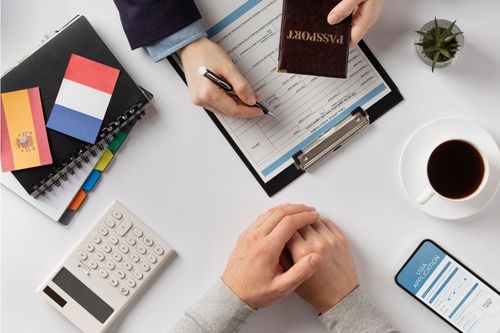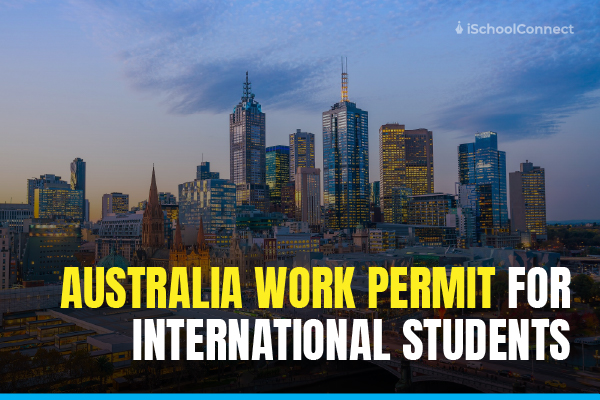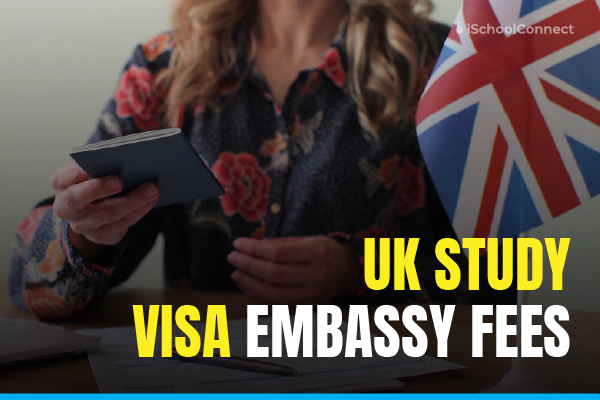Table of Contents
- How to get pr in Netherlands?
- Conditions for Netherlands residence permit
- Will you need a sponsor for a Netherlands residence permit?
- How to apply for a Netherlands residence permit?
- The civic integration exam
- When you do not require MVV
- Complete the application
- Netherlands PR process
- Types of Netherlands residence permit
- Key takeaways
- FAQs
If you intend to stay in the Netherlands for more than three months, you may be required to obtain a Netherlands residence permit. You can stay in the Netherlands for up to five years with a Dutch residence permit. Your nationality largely determines the need for a PR in the Netherlands. You may also need to apply for an MVV visa. Let’s learn more about permanent residency in the Netherlands.
How to get pr in Netherlands?

Unless you are a citizen of the European Union (EU), the European Economic Area (EEA), or Switzerland, you will need to apply for a residence permit if you intend to move to the Netherlands.
If you are a family member of an EU, EEA, or Swiss citizen, you do not need a residence permit in the Netherlands. Still, you must apply for verification against EU Law (certificate of lawful residence).
If you do not require a Dutch residence permit, you must register with the local Durch officials if you plan to stay for an extended period. If you do not fall into one of those two categories, you will need a Dutch residence permit to stay in the Netherlands for an extended period.
Conditions for Netherlands residence permit
To be eligible for a residence permit in the Netherlands, you must be able to meet the following general requirements
- Your passport or identification document must be valid for the entire duration of your stay.
- You must have adequate financial resources. Payslips/salary statements, documents proving you own stock in a company, or a letter from a benefits agency could all be examples.
- You are required to have health insurance. It must cover you for the entire duration of your stay in the Netherlands.
- You may not endanger ‘public order, national peace, or national security.’
- You must provide proof of your reason for staying. For instance, one must give a Dutch employment contract, a document from a Dutch educational institution, or a marriage or civil partnership certificate.
- You may be required to take a tuberculosis test within three months of arriving in the Netherlands. If you have the disease, you must seek treatment. They may revoke your permanent residency if you do not take the test within three months.
Remember that these are only general conditions. You will be required to meet additional requirements based on the purpose of your stay. For example, a student visa has different restrictions and conditions than a work visa.
Will you need a sponsor for a Netherlands residence permit?
Yes, you will need a sponsor to obtain a residence permit in the Netherlands. Your sponsor is the person or organization interested in you going to the Netherlands.
For instance, a family member or partner can be your sponsor if you apply for a residence permit to stay with your family (family visa). Your educational institution is your sponsor if you want to obtain a residence permit to study in the Netherlands (study visa). Your employer is your sponsor if you want a residence permit to work in the Netherlands (work visa).
How to apply for a Netherlands residence permit?

First, check if you need an MVV. Sometimes, you require an MVV visa (long-stay or type D visa) to apply for a Dutch residence permit. Your nationality determines whether or not you need one.
An MVV visa permits the holder to enter the Netherlands while their application for a residence permit is processed. An MVV is a temporary stay authorization or a provisional residence permit.
If you require an MVV visa, you (or your sponsor) can apply through the Entry and Residence Procedure for both the MVV and the Dutch residence permit (TEV).
When applying independently, you must do so at your country’s Dutch embassy or consulate. If your sponsor applies on your behalf, they can do so directly with the Immigration and Naturalisation Service.
The civic integration exam
If you need to get an MVV, you must first pass a civic integration exam. The civic integration exam, divided into three sections, assess your knowledge of the Dutch language and society. The exam is mandatory for adults aged 18 to 65, except-
- Turkish citizens
- If they apply for a residence permit, adoption, paid employment, au pair, exchange, study, medical treatment, or as independent persons under an international treaty, they must provide proof of their eligibility.
- If they have specific qualifications, such as a university degree or Dutch language skills
When you do not require MVV
If you do not have an MVV visa, you must apply for a Dutch residence permit within 90 days of entering the Netherlands. You’re in the Netherlands illegally if you haven’t applied for a residence permit after 90 days.
You can also apply for a residence permit while still in your home country, or your sponsor can do so on your behalf at the IND.
Complete the application
You and your sponsor will need to provide several documents depending on the purpose of your stay to apply for a Netherlands residence permit. The documents and other requirements vary depending on the Netherlands residence permit you seek.
- The documents must be in Dutch, English, French, or German. If they are not, they must be translated into Dutch by an official translator and submitted alongside the originals. Any foreign documents must be legalized or authenticated by a government official in your home country.
- All your documents must be apostille stamped, including birth and marriage certificates, bank statements, employment contracts, etc.
- They must also be signed by an official from the issuing party and certified by a lawyer or notary public before one can use them.
- When you submit your application, you must pay a processing fee. The fee is non-refundable and varies depending on your purpose of travel.
Netherlands PR process
Processing a residence permit application in the Netherlands can take up to 90 days. Following that, they will inform you whether or not your residence permit has been approved.
If your application is approved, you can obtain your Dutch residence permit from the IND office in the Netherlands. Your personal information, the purpose of stay, validity, V-number, and work status are all listed on the permit.
Types of Netherlands residence permit
Below are the types of Netherlands residence permits.
In terms of validity
- Permit for Temporary Residence- The holder of this permit may stay in the Netherlands for up to five years. They may extend their visa after five years, which is not always permitted.
- Permit for Permanent Residency- You may be eligible for a permanent residence permit if you have lived in the Netherlands for five years. It gives you the right to remain in the Netherlands indefinitely.
Based on purpose
Depending on your purpose, you can apply for a temporary residence permit in the Netherlands. These are some examples of temporary Dutch residence permits or visas-
- A Netherlands work visa
- A Netherlands study visa
- A Netherlands family visa
- Netherlands Au pair visa
- The Netherlands working holiday visa
- DAFT visa
Key takeaways
- Citizens of the European Union (EU), the European Economic Area (EEA), or Switzerland do not require a Netherlands residence permit.
- You will need a sponsor for a residence permit like a family member, an educational institution, or a work organization that needs you in the Netherlands.
- You will need to provide documentation depending on the type of residence permit you are applying for in the Netherlands.
Did you find this blog informative? If so, do express your thoughts in the comments below. Click here to contact us for more information on permanent residency in the Netherlands. We would be happy to assist you with your queries.
Liked this blog? Read next: Steps required to obtain permanent residency in Australia
FAQs
Q1. When do you need to extend the residence permit?
Answer- The IND advises foreign citizens who live in the Netherlands to extend their residence permit three months before it expires.
Q2. What are the application fees for a residence visa in the Netherlands?
Answer- The first-time application fee for third-country nationals is 174 EUR (205 USD).
Q3. What types of residence permits can you not extend?
Answer- The au pair, trainee, working holiday scheme, seasonal work, and orientation year for graduates permits are the types of permits you cannot extend in the Netherlands.






